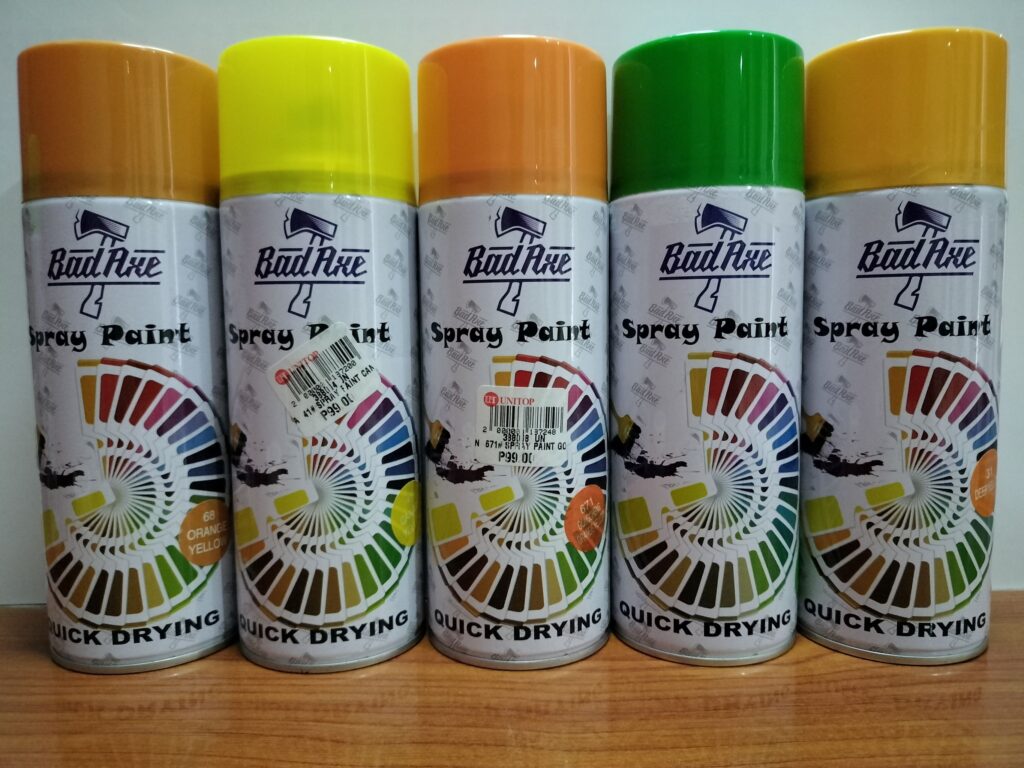
Bad Axe spray paint, which was sold in different stores in Cebu, was found to have lead content. EcoWaste Coalition warned the public to avoid purchasing the product due to its ill-effect to humans health. | Ecowaste Coalition
LAPU-LAPU CITY, Cebu — A toxics watchdog group warned Cebuanos on purchasing lead-containing spray paints that were sold in retail stores in the cities of Cebu, Lapu-Lapu and Mandaue.
EcoWaste Coalition described this as an illegal act as the production, importation, distribution, and sale of leaded paint had been strictly forbidden across the country to protect the health of children, workers, and women of reproductive age.
READ: Rama to Cebu City police: Eliminate vandalism, reduce crime by June 12 or no allowance
Bad Axe Spray Paint
In a rapid monitoring conducted by the group on September 26, they saw “Bad Axe Spray Paint” being sold on store shelves of Unitop in Cebu City and Lapu-Lapu and at Unishop in Mandaue City.
“Our discovery of five more lead-containing aerosol paints in Cebu indicates the need for improved compliance monitoring, particularly outside Metro Manila and Luzon, to protect the health of children and adults from this continuing source of lead exposure,” Manny Calonzo of the EcoWaste Coalition said.
Each 400-milliliter can is sold for less than P100 and is available in a variety of colors. The spray paint is used for coating the interior and exterior wooden, steel, and other metal surface of household appliances, equipment, furniture, bicycle and the like.
READ: Poisonous banana spider of Brazil aids in erectile dysfunction treatment
No manufacturer’s markings
The product was manufactured between 2021 to 2023, however, it has no manufacturer’s markings and its country of manufacture is unknown. It also does not provide a warning about the paint’s lead content.
The group, which tracked 99 leaded spray paints since 2020, has never tested the brand before. But through their analytical device, using a handheld X-ray fluorescence (XRF) chemicals analyzer, they detected lead on the five Bad Axe paint products above 90 parts per million (ppm), the maximum limit under the DENR-issued Chemical Control Order for Lead and Lead Compounds.
READ: WHO on lead poisoning
On lead poisoning
The World Health Organization (WHO), which co-manages the Secretariat of the Global Alliance to Eliminate Lead Paint (or the Lead Paint Alliance), has warned that lead exposure can have serious consequences for the health of children.
Exposure to lead is known to result in adverse health effects such as damage to the brain and the central nervous system, slowed growth and development, hearing and speech problems, learning difficulties, and behavioral problems, which can cause reduced ability to pay attention, underperformance in school, and lower intelligence quotient (IQ).
The country’s lead paint regulation is stipulated under DENR Administrative Order No. 2013-24, which established a maximum limit of 90 ppm for total lead in paint. This landmark chemical policy phased out leaded decorative and industrial paints in December 2016 and December 2019, respectively.